Fleurs du Mal Magazine


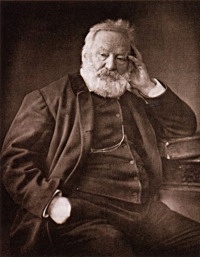
Les femmes sont sur la terre . . . .
Les femmes sont sur la terre
Pour tout idéaliser ;
L’univers est un mystère
Que commente leur baiser.
C’est l’amour qui, pour ceinture,
A l’onde et le firmament,
Et dont toute la nature,
N’est, au fond, que l’ornement.
Tout ce qui brille, offre à l’âme
Son parfum ou sa couleur ;
Si Dieu n’avait fait la femme,
Il n’aurait pas fait la fleur.
A quoi bon vos étincelles,
Bleus saphirs, sans les yeux doux ?
Les diamants, sans les belles,
Ne sont plus que des cailloux ;
Et, dans les charmilles vertes,
Les roses dorment debout,
Et sont des bouches ouvertes
Pour ne rien dire du tout.
Tout objet qui charme ou rêve
Tient des femmes sa clarté ;
La perle blanche, sans Eve,
Sans toi, ma fière beauté,
Ressemblant, tout enlaidie,
A mon amour qui te fuit,
N’est plus que la maladie
D’une bête dans la nuit.
Victor Hugo
(1802-1885)
Les femmes sont sur la terre . . . .
(Poème)
• fleursdumal.nl magazine
More in: Archive G-H, Archive G-H, Hugo, Victor, Victor Hugo
Op 24 augustus 2019 ontving kunstenaar René Daniëls (Eindhoven 1950) de Cultuurprijs van het Prins Bernhard Cultuurfonds Noord-Brabant. De jury wil René Daniëls eren voor zijn rijke oeuvre, maar zeker ook voor de aanhoudende invloed van zijn werk op jonge generaties kunstenaars.
Het Van Abbemuseum viert dit door een kleine selectie uit zijn oeuvre te tonen. Te zien zijn werken van 1984 tot heden.
 Het betreft schilderijen uit de collectie van het museum, aangevuld met recent werk en werken van de Stichting René Daniëls. In vitrines worden notitieboeken, foto’s en catalogi getoond.
Het betreft schilderijen uit de collectie van het museum, aangevuld met recent werk en werken van de Stichting René Daniëls. In vitrines worden notitieboeken, foto’s en catalogi getoond.
René Daniels werd internationaal bekend in de jaren tachtig, toen de expressieve schilderkunst hoogtij vierde. Zijn werk onderscheidt zich door de bijzondere manier waarop hij speelt met woorden en beelden, waardoor meerdere betekenislagen ontstaan. Een bekend thema is de tentoonstellingsruimte, die hij transformeert tot zandloper of vlinderdasje.
In 1987, juist op het moment dat Daniëls internationaal grote bekendheid kreeg, werd hij getroffen door een hersenbloeding. Het bleef enige jaren stil rond hem, totdat hij eind jaren negentig opnieuw naar buiten trad. Aanvankelijk met tekeningen, maar vanaf 2006 ook met werken op doek.
In 2012 organiseerde het Van Abbe een grote tentoonstelling van zijn werk die ook in Reina Sofia in Madrid te zien was. Onlangs nog was een groot overzicht te zien in Wiels, Brussel en MAMCO, Genève.
René Daniëls (Eindhoven 1950) woont en werkt in Eindhoven. Het Van Abbemuseum organiseerde sinds 1978 verschillende tentoonstellingen van het werk van Daniëls en heeft werken van hem in zijn collectie. Bovendien beheert het museum sinds begin jaren negentig de werken van de Stichting René Daniëls.
tentoonstelling
René Daniëls
Laureaat Cultuurprijs Noord-Brabant
Nog te zien tot en met 15/09/2019
Van Abbemuseum
Bilderdijklaan 10
5611 NH Eindhoven
t: +31 (0)40 238 1000
f: +31 (0)40 246 06 80
e: info@vanabbemuseum.nl
# Meer op website Van Abbe Museum
René Daniëls
tentoonstelling
• fleursdumal.nl magazine
More in: Art & Literature News, Exhibition Archive, FDM Art Gallery, René Daniëls
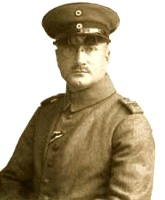
Schwermut
Schreiten Streben
Leben sehnt
Schauern Stehen
Blicke suchen
Sterben wächst
Das Kommen
Schreit!
Tief
Stummen
Wir.
August Stramm
(1874-1915)
Schwermut, 1914
• fleursdumal.nl magazine
More in: *War Poetry Archive, Archive S-T, Expressionism, Stramm, August
The 2016 Nobel Prize in Literature recognized Bob Dylan as a major modern artist, elevating his work beyond the world of popular music.
In this book, Timothy Hampton focuses on the details and nuances of Dylan’s songs, showing how they work as artistic statements designed to create meaning and elicit emotion.
With Bob Dylan’s Poetics, Hampton offers a unique examination of both the poetics and politics of Dylan’s compositions. He studies Dylan not as a pop hero, but as an artist, as a maker of songs.
F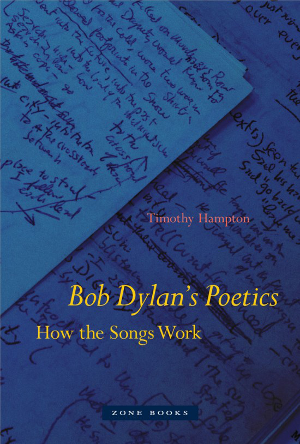 ocusing on the interplay of music and lyric, Hampton traces Dylan’s innovative use of musical form, his complex manipulation of poetic diction, and his dialogues with other artists, from Woody Guthrie to Arthur Rimbaud.
ocusing on the interplay of music and lyric, Hampton traces Dylan’s innovative use of musical form, his complex manipulation of poetic diction, and his dialogues with other artists, from Woody Guthrie to Arthur Rimbaud.
Moving from Dylan’s earliest experiments with the blues through his mastery of rock and country to his densely allusive more recent recordings, Hampton offers a detailed account of Dylan’s achievement.
Locating Dylan in the long history of artistic modernism, he examines the relationships among form, genre, and the political and social themes that crisscross Dylan’s work. With this book, Hampton offers both a nuanced engagement with the work of a major artist and a meditation on the contribution of song at times of political and social change.
Title Bob Dylan’s Poetics
Subtitle How the Songs Work
Author Timothy Hampton
Publisher MIT Press
Title First Published 01 March 2019
Format Hardcover
ISBN-10 1942130155
ISBN-13 9781942130154
Hardcover – $29.95
# more books
Bob Dylan’s Poetics.
How the Songs Work
by Timothy Hampton
• fleursdumal.nl magazine
More in: - Book News, - Bookstores, Archive C-D, Archive C-D, Archive G-H, AUDIO, CINEMA, RADIO & TV, Bob Dylan, Dylan, Bob
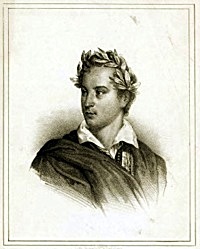
So we’ll go no more a roving
So we’ll go no more a roving
So late into the night,
Though the heart be still as loving,
And the moon be still as bright.
For the sword outwears its sheath,
And the soul wears out the breast,
And the heart must pause to breathe,
And Love itself have rest.
Though the night was made for loving,
And the day returns too soon,
Yet we’ll go no more a roving
By the light of the moon.
George Gordon Byron
(1788 – 1824)
So we’ll go no more a roving
(Poem)
• fleursdumal.nl magazine
More in: Archive A-B, Archive A-B, Byron, Lord
In this innovative study, Tyler Whitney demonstrates how a transformation and militarization of the civilian soundscape in the late nineteenth and early twentieth centuries left indelible traces on the literature that defined the period.
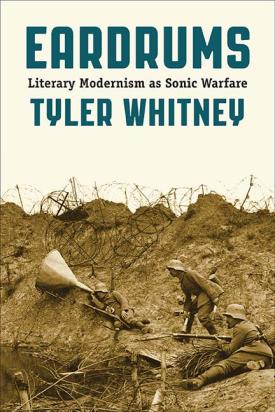 Both formally and thematically, the modernist aesthetics of Franz Kafka, Robert Musil, Detlev von Liliencron, and Peter Altenberg drew on this blurring of martial and civilian soundscapes in traumatic and performative repetitions of war.
Both formally and thematically, the modernist aesthetics of Franz Kafka, Robert Musil, Detlev von Liliencron, and Peter Altenberg drew on this blurring of martial and civilian soundscapes in traumatic and performative repetitions of war.
At the same time, Richard Huelsenbeck assaulted audiences in Zurich with his “sound poems,” which combined references to World War I, colonialism, and violent encounters in urban spaces with nonsensical utterances and linguistic detritus—all accompanied by the relentless beating of a drum on the stage of the Cabaret Voltaire.
Eardrums is the first book-length study to explore the relationship between acoustical modernity and German modernism, charting a literary and cultural history written in and around the eardrum. The result is not only a new way of understanding the sonic impulses behind key literary texts from the period. It also outlines an entirely new approach to the study of literature as as the interaction of text and sonic practice, voice and noise, which will be of interest to scholars across literary studies, media theory, sound studies, and the history of science.
Tyler Whitney is an assistant professor of German at the University of Michigan.
Tyler Whitney (Author)
Eardrums.
Literary Modernism as Sonic Warfare
Cloth Text – $99.95
ISBN 978-0-8101-4022-6
Paper Text – $34.95
ISBN 978-0-8101-4021-9
Northwestern University Press
Publication Date June 2019
Literary Criticism
232 pages
Price: $24.00
# new books
Tyler Whitney
Eardrums.
Literary Modernism as Sonic Warfare
• fleursdumal.nl magazine
More in: # Music Archive, #Archive A-Z Sound Poetry, *War Poetry Archive, - Book News, - Book Stories, Archive W-X, AUDIO, CINEMA, RADIO & TV, DADA, Dadaïsme, Kafka, Franz, Modernisme, Visual & Concrete Poetry
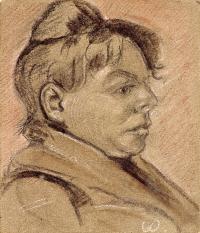
Meer, meer!
Verwond, vermink,
Schiet dood, houw neer!
Roep legers op.
Steeds meer, steeds weer.
Vermorzel ze
Hak z’in elkaar!
Bedenk, het is
uw broeder maar.
Spreek ik zoo goed?
Is ‘t mooi zoo’n lied?..
De mensch sterft uit,
maar ‘t hindert niet!
Agnita Feis
(1881 – 1944)
Uit: Oorlog. Verzen in Staccato (1916).
Meer, meer!
• fleursdumal.nl magazine
More in: *War Poetry Archive, Agnita Feis, Antony Kok, Archive E-F, Feis, Agnita, Theo van Doesburg (I.K. Bonset), WAR & PEACE
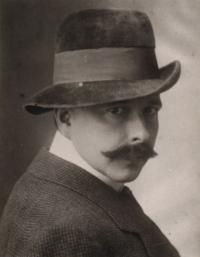 Antony Kok (1882 – 1969)
Antony Kok (1882 – 1969)
Antony Kok, was met Theo van Doesburg en Piet Mondriaan oprichter en medewerker van het avant-gardistische kunsttijdschrift De Stijl (1917 – 1932). Hij was vooral actief als dichter en schrijver van aforismen.
Kees Verwey (1900 -1995)
Tijdens zijn leven, dat bijna een eeuw beslaat, maakte de kunstenaar verschillende ontwikkelingen in de schilderkunst mee. Al op jonge leeftijd kwam hij in aanraking met het werk van George Breitner en Floris Verster. Ook werd hij beïnvloed door Franse (post-)impressionisten en later door de moderne kunst van o.a. Karel Appel en Pablo Picasso. Omringd door de kunst van zijn idolen wordt in deze nieuwe tentoonstelling de enorme vaardigheid en veelzijdigheid van de schilder Verwey duidelijk.
Na hun ontmoeting (in Haarlem in 1953) verklaarde Kees Verwey:
‘Antony Kok had me te pakken. Ruim een jaar ben ik met die ene man bezig geweest. Je zou zeggen dat zoiets ondenkbaar is, maar ik kon niet buiten de visie op die man. Het was een proces dat niet meer kon worden tegengehouden. Ik heb hem er wel eens over ondervraagd, toen zei hij: maar jij hebt die tekeningen niet gemaakt, ik heb ze gemaakt.’
In het eerste jaren van hun kennismaking maakte Verwey meer dan 30 portretten van Kok. De eerste serie zou begin jaren vijftig worden tentoongesteld in Amsterdam, Rotterdam en Haarlem. In 1955 was de serie uitgegroeid tot 40×1 en in Eindhoven te zien.
Lees meer over Kees Verwey, zijn vrienden en favoriete kunstenaars, zoals Karel Appel, Pablo Picasso, Edouard Vuillard, Floris Verster en Antony Kok in de bij de tentoonstelling verschenen publicatie:
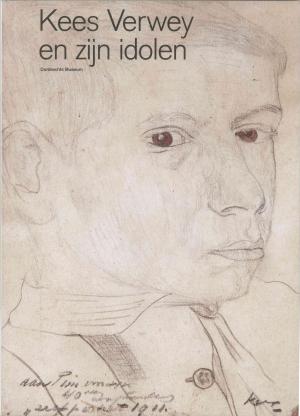
Kees Verwey
en zijn idolen
Dordrechts Museum
2019
ISBN 978-90-71722-30-1
Redactie: Laura van den Hout, Judith Spijksma, Linda Janssen
Publicatie ter gelegenheid van de tentoonstelling ‘Kees Verwey en zijn idolen’, die van 14 juli 2019 tot en met 5 januari 2020 plaatsvindt in het Dordrechts Museum. De tentoonstelling kwam tot stand in samenwerking met Stichting Kees Verwey.
I N H O U D
6
Max van Rooy
Portretten als stillevens en het atelier als goudmijn
12
Karlijn de Jong
De moeder van de moderne kunst
Kees Verwey en De Onafhankelijken
22
Tijdlijn
26
Barbara Collé
Kijk ik naar de een, dan vlamt de ander
Over kleurenparen in Moeders theetafel en Het gele jakje van Kees Verwey, en Stilleven met boeken van Henri Frédéric Boot
34
Iduna Paalman
Sigaretje
36
Ester Naomi Perquin
Bes
38
Maartje Smits
Door je kind getekend
40
Maarten Buser
Pirouettes draaien op een idee
Kees Verwey en de literatuur
46
Jorne Vriens
Gekoesterde intimiteit
50
Max van Rooy
De onderzoekende kracht van het kijken
54
Sascha Broeders
De kunstenaar en de museumdirecteur
Kees Verwey volgens Jup de Groot, voormalig directeur van het Dordrechts Museum
56
Hanneke van Kempen en Jef van Kempen
‘Antony Kok had me te pakken’
66
Sandra Kisters
Het atelier van Kees Verwey – een kristal met vele facetten
75
Biografieën
76
Colofon
Tentoonstelling van 6 juli 2019 t/m 5 januari 2020
Kees Verwey en zijn idolen
Over Karel Appel, Pablo Picasso, Edouard Vuillard, Floris Verster, Antony Kok e.a.
Dordrechts Museum
Museumstraat 40, Dordrecht
3311 XP Dordrecht
www.dordrechtsmuseum.nl
‘Antony Kok had me te pakken’ sprak Kees Verwey
fleursdumal.nl magazine
More in: - Book News, - Book Stories, Antony Kok, Archive K-L, Archive W-X, Art & Literature News, DADA, Dada, De Stijl, Exhibition Archive, FDM Art Gallery, Hanneke van Kempen, Jef van Kempen, Kees Verwey, Kok, Antony, Piet Mondriaan, Theo van Doesburg
En décembre 1945, Louis-Ferdinand Céline est arrêté à Copenhague, où il s’était réfugié avec Lucette et son chat Bébert et tentait d’écrire la suite de Guignol’s band.
L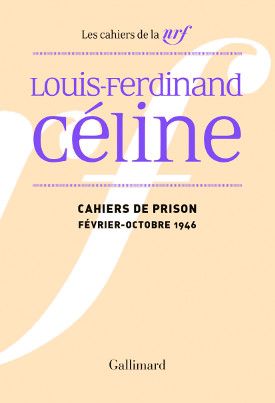 e dénommé Destouches, immédiatement incarcéré à la prison de l’Ouest, réclame de quoi écrire. L’administration pénitentiaire lui fournit dix cahiers d’écolier de 32 pages avec des règles à respecter : « On ne doit pas écrire sur l’affaire dont on est justiciable ni sur la détention. Tout propos licencieux et malséant est également interdit. »
e dénommé Destouches, immédiatement incarcéré à la prison de l’Ouest, réclame de quoi écrire. L’administration pénitentiaire lui fournit dix cahiers d’écolier de 32 pages avec des règles à respecter : « On ne doit pas écrire sur l’affaire dont on est justiciable ni sur la détention. Tout propos licencieux et malséant est également interdit. »
À partir de février 1946, le prisonnier note d’emblée des éléments de défense pour empêcher son extradition dans la France de l’épuration, et s’en prend à l’ambassadeur Charbonnières qui le persécute. Mais Céline est repris par l’écriture et les Cahiers de prison dévoilent sa vie après son arrivée au Danemark, sa relation avec Lucette, des souvenirs de Londres ou de Montmartre, et surtout montrent de manière inédite le Céline lecteur. Isolé dans la cellule 609 de la section K., Céline s’entoure de livres apportés par sa femme et cite abondamment Chateaubriand, Hugo, Chamfort, Voltaire, etc., en se comparant avec les « grands écrivains exilés emprisonnés ». Les Cahiers illustrent aussi la transition littéraire vers sa « seconde révolution narrative et stylistique », note Jean Paul Louis, avec la mise en chantier de Féerie pour une autre fois, et des passages que l’on retrouvera dans D’un château l’autre, Nord et Rigodon.
Ce volume des Cahiers de la NRF constitue la première édition originale et intégrale des Cahiers de prison de Céline. Avec un nouveau travail d’établissement du texte et des notes, ainsi qu’un index centré sur les noms d’auteurs et les titres d’oeuvres, Céline nous apparaît tel qu’en lui-même, obsédé par la littérature et sa condition d’écrivain : « C’est moi maintenant le traître, le monstre, c’est moi qu’on s’apprête à lyncher. »
Louis-Ferdinand Céline
Cahiers de prison (Février – octobre 1946)
Édition de Jean Paul Louis
Collection Les Cahiers de la NRF,
Série Céline (n° 13), Gallimard
Parution : 23-05-2019
240 pages
sous couverture décorée, 140 x 205 mm
Achevé d’imprimer : 01-05-2019
Genre : Mémoires et autobiographies
Thème : littérature
Catégorie – Sous-catégorie :
Littérature française
Mémoires et autobiographies
Époque : XXe siècle
ISBN : 9782072852695
Gencode : 9782072852695
Code distributeur : G03149
Broché
EUR 20,00
# more books
Louis-Ferdinand Céline
Cahiers de prison
• fleursdumal.nl magazine
More in: #Biography Archives, - Book Lovers, - Book News, Archive C-D, CRIME & PUNISHMENT, Louis-Ferdinand Céline, WAR & PEACE
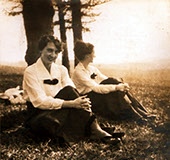
Choice
Imperious Time, I must prefer
Thy just necessity:
Resign the silent, earlier
Beliefs grown dear to me.
The stillness left alternatives
To youth, a freedom wide
And dim as dreaming, but man lives,
And must one day decide.
There is a doom the years compel:
I must approach the goal
Decreed, where it behooves me dwell:
I must declare my soul;
Must speak and choose what stars pertain
To me ; needs must I rest
In their most intimate beams, remain
Committed and confessed.
I claim a tent of stars in place
Of heaven’s confusing dome:
A tent of stars in a dark space —
The sky must be my home.
Gladys Cromwell
(1885-1919)
Choice
From: Poems 1919
• fleursdumal.nl magazine
More in: Archive G-H, Cromwell, Gladys, Gladys Cromwell

Nacht im Schützengraben
Tief will sich der Himmel neigen,
Schwer von seiner Sternenlast.
Runde Leuchtraketen steigen
Auf zu seinem Blaudamast.
Rückwärts ist mein Kopf geglitten
Auf den Sand der Schulterwehr
Und mir ist, als wär ich mitten
In dem weißen Silbermeer.
Schüsse fallen, Rufe kommen,
Meine Hand kühlt kühlen Wind,
Und ich weiß kaum, traumbenommen,
Noch, was Stern, was Augen sind.
Gerhard Moerner
(1894-1917)
Aus: „Aus dem Felde“. Gedichte.
Kugelverlag, Hamburg 1917.
• fleursdumal.nl magazine
More in: *War Poetry Archive, - Archive Tombeau de la jeunesse, Archive M-N, WAR & PEACE
The first and most complete narrative biography of Crosby, Stills, Nash and Young, by acclaimed music journalist and Rolling Stone senior writer David Browne.
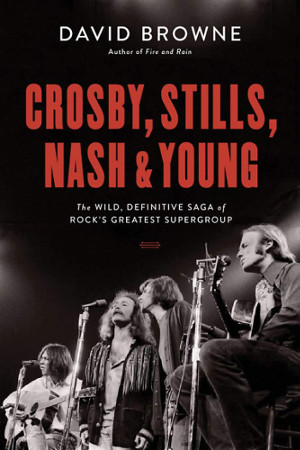 Even in the larger-than-life world of rock and roll, it was hard to imagine four more different men.
Even in the larger-than-life world of rock and roll, it was hard to imagine four more different men.
David Crosby, the opinionated hippie guru. Stephen Stills, the perpetually driven musician. Graham Nash, the tactful pop craftsman. Neil Young, the creatively restless loner.
But together, few groups were as in sync with their times as Crosby, Stills, Nash and Young. Starting with the original trio’s landmark 1969 debut album, the group embodied much about its era: communal musicmaking, protest songs that took on the establishment and Richard Nixon, and liberal attitudes toward partners and lifestyles. Their group or individual songs–“Wooden Ships,” “Suite: Judy Blue Eyes,” “After the Gold Rush,” “For What It’s Worth” (with Stills and Young’s Buffalo Springfield), “Love the One You’re With,” “Long Time Gone,” “Just a Song Before I Go,” “Southern Cross”–became the soundtrack of a generation.
But their story would rarely be as harmonious as their legendary and influential vocal blend. In the years that followed, these four volatile men would continually break up, reunite, and disband again–all against a backdrop of social and musical change, recurring disagreements and jealousies, and self-destructive tendencies that threatened to cripple them both as a group and as individuals.
In Crosby, Stills, Nash and Young: The Wild, Definitive Saga of Rock’s Greatest Supergroup, longtime music journalist and Rolling Stone writer David Browne presents the ultimate deep dive into rock and roll’s most musical and turbulent brotherhood on the occasion of its 50th anniversary. Featuring exclusive interviews with David Crosby and Graham Nash along with band members, colleagues, fellow superstars, former managers, employees, and lovers-and with access to unreleased music and documents–Browne takes readers backstage and onstage, into the musicians’ homes, recording studios, and psyches, to chronicle the creative and psychological ties that have bound these men together–and sometimes torn them apart.
This is the sweeping story of rock’s longest-running, most dysfunctional, yet pre-eminent musical family, delivered with the epic feel their story rightly deserves.
Crosby, Stills, Nash and Young:
The Wild, Definitive Saga of Rock’s Greatest Supergroup
by David Browne (Author)
Hardcover: 480 pages
Publisher: Da Capo Press;
1st Edition edition April 2, 2019
Language: English
ISBN-10: 0306903288
ISBN-13: 978-0306903281
April 2, 2019
Hardcover
$20.23
# more books
Crosby, Stills, Nash and Young:
The Wild, Definitive Saga of Rock’s Greatest Supergroup
• fleursdumal.nl magazine
More in: # Music Archive, #Biography Archives, - Book News, - Book Stories, Archive A-B, AUDIO, CINEMA, RADIO & TV, Crosby, Stills, Nash and Young, Opium-Eaters
Thank you for reading Fleurs du Mal - magazine for art & literature